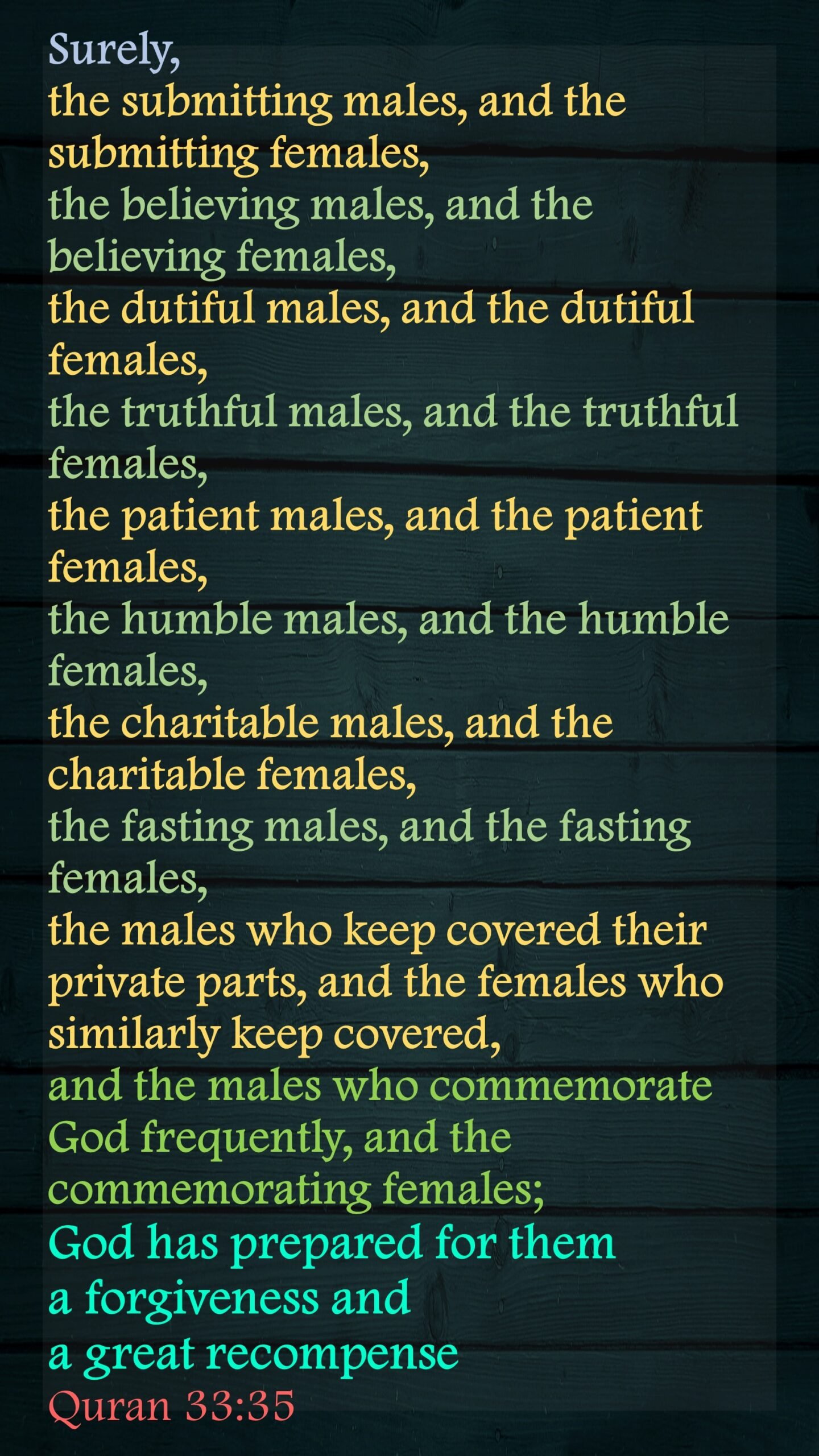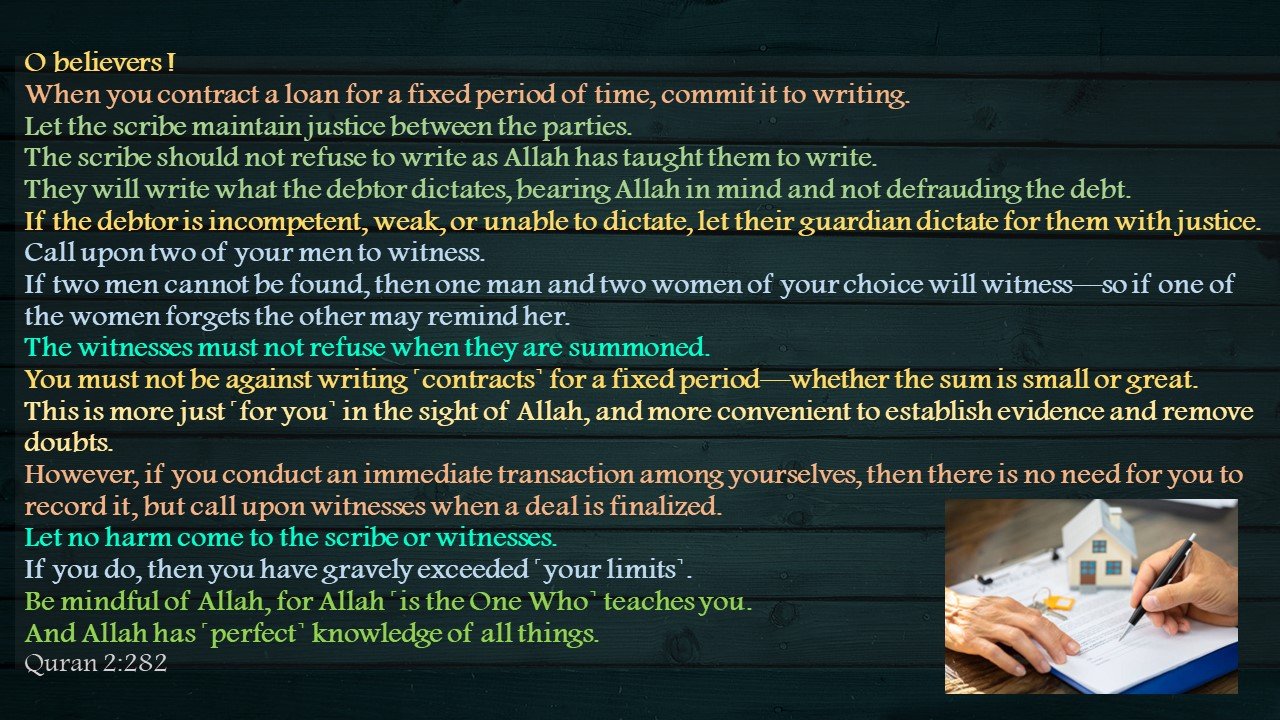16
Jan, 2023
Quran 24:36~38
Islam, Quran Allah, alm, ayat, buying, daily, deed, distracted, evening, fear, Glorified, Grace, heart, hope, houses, inspirations, islam, islamic, light, limit, Men, mention, morning, mosque, name, not, order, pay, perform, prayer, provision, quran, raise, rememberance, reward, selling, shines, Surah, tax, tremble, without, worship
30
Dec, 2022
Quran 33:35
Islam, Quran Allah, ayat, believe, Chapter 35, charitable, commemorate, cover, daily, dutiful, equal, fasting, female, forgive, forgiveness, God, great, humble, inspirations, islam, islamic, male, Men, parts, patient, prayer, prepare, private, quran, recompense, reward, Surah, truthful, women
16
Jul, 2022
Quran 47:19
Islam, Quran ayat, believing, daily, forgiveness, inspirations, islam, islamic, Men, movements, Muhammad, no god except Allah, PBUH, Phophet, places, quran, rest, SAWW, seek, shortcomings, Surah, SWT, women
8
Jul, 2022
Quran 9:71~72
Islam, Quran All Wise, alm, Almighty, ayat, Chapter 9, daily, encourage, Eternity, evil, forbid, forever, Gardens, Gardens of Eternity, good, Guardian, home, inspirations, islam, islamic, Men, messenger, Obey, pay, PBUH, promise, quran, rivers, SAWW, splendid, Surah, tax, triumph, true, ultimate, verse 71, verse 72, women
16
Jun, 2022
Quran 57:10~12
Islam, Quran Aware, ayat, believe, chapter 57, daily, earth, forever, Gardens, great, Heaven, inherit, inspirations, islam, islamic, lendmgood, light, loan, Men, multiply, quran, rank, reward, rivers, shine, spend, Surah, triumph, ultimate, verse 10, verse 11, Verse 12, women
26
May, 2022
Quran 2:282
Islam, Quran Allah, ayat, Chapter 2, contract, daily, debtor, dictate, exceed, fixed, grave, Guardian, harm, inspirations, islam, islamic, justuce, knowledge, limit, loan, Men, mindful, not, perfect, period, quran, refuse, scribe, summon, teach, transaction, Verse 282, weak, witness, women
28
Jan, 2022










